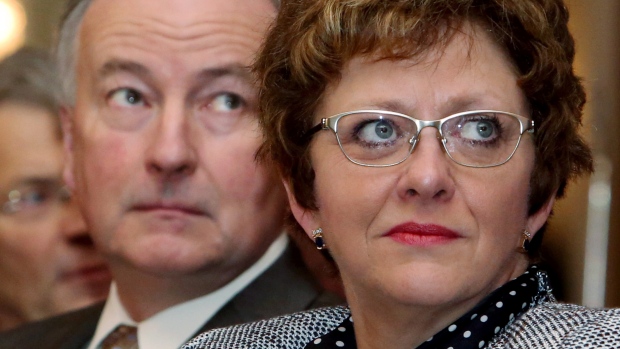Analysts have been buzzing following the announcement by Minister of Public Works and Government Services, Diane Finley, that Canada would be adopting a new Defence Procurement Strategy (DPS). While most are pleased that policy makers have taken action on reforming the historically troubled processes associated with acquiring and maintaining defence capabilities, the reviews are mixed as to whether or not it will successfully deliver on all the fronts necessary for overall improvement.
[captionpix align=”left” theme=”elegant” width=”300″ imgsrc=”http://natoassociation.ca/wp-content/uploads/2014/02/image1.jpg”]
With the numerous and costly high-profile cases of late or over-budget acquisitions such as the replacement of the Sikorsky Sea King helicopter fleet and the F-35 jet debacle, it’s abundantly clear that Canada needs to produce an efficient and affordable solution to its current procurement woes. That said, it’s also important to note that this is not a uniquely Canadian problem. The National Audit Office in the United Kingdom reported the sixteen largest procurement projects undertaken by the Ministry of Defence were nearly £500 million over budget in 2012. Similarly, the Government Accountability Office in the United States recounted an astounding $70 billion in overspending over the last two years attributable to management failures and general inefficiency, a significant portion of which had to do with the same F-35 jets that Canada has struggled to acquire.
Each of these countries, Canada included, has a long history of periodic defence procurement reform. This state of affairs begs the question: why have none of these efforts been completely successful in achieving the elusive goals of efficiency and affordability? A partial answer that may help to contextualize the recent changes embodied in the new DPS may lie in the complex dynamics of bureaucratic engineering and policy implementation.
The first steps in the reform process are problem definition and policy formulation. In theory, policy makers should be able to objectively assess the weaknesses of a given governmental system and develop rational policy responses to fix them once and for all. In practice, however, defining complex institutional and organizational problems is by no means a straightforward affair. Policy makers do not often have the kind of privileged “rational” access described in the theory, requiring them to turn to various policy and industry specialists to build a patchwork conception of the problem.
In the case of the new DPS, Minister Finley appointed a Special Advisor, backed by a panel of industry specialists, to furnish a report identifying the weaknesses of the previous system. The tenuous nature of the problem definition phase means that policy makers tend to be somewhat conservative in the changes they make, opting to make incremental alterations to existing bureaucratic structures and processes – a notion that appears largely consistent with the substantive content of the new DPS. Modest changes allow policy makers to compare between the old and the new to see if they are on track toward achieving the desired goals, and to adjust course if needed.
[captionpix align=”left” theme=”elegant” width=”300″ imgsrc=”http://natoassociation.ca/wp-content/uploads/2014/02/Ambrose-660×290.jpg”]
Another important consequence of the way that issues and their responses are constructed is the well documented influence of politics. Political considerations often give policies a certain character and coherence that fit into broader political agendas. The new DPS is full of language about measures designed to leverage defence procurement for economic benefit by stimulating domestic industry and export activity. Setting aside the assessment of whether or not these measures will be successful, this colouring of the DPS can be seen as a manifestation of the greater strategic political environment on Parliament Hill. The problem for Canadian defence procurement itself, of course, is that political agendas are far from stable; elections may force political parties dedicated to reform from power, and less dedicated efforts over the course of a single party’s tenure can fall by the wayside in the face of other pressures.
Finally, structural changes to bureaucratic units are often very difficult to establish and maintain. Bureaucracies are constituted by a culture or “ethos” that plays a role in determining which issues will be prioritized and the degree to which they will be actively pursued. Ethos is indicative of heavily engrained practices that are notoriously difficult to change. In order to break these routines to implement structural changes, policy makers often rely on bureaucratic coalitions to shake up standard operating procedures. This helps to explain the decision to establish a Defence Procurement Secretariat in the new DPS – a measure that will help to streamline decision-making and process monitoring between separate bureaucratic departments.
These features help to put the troubled history of defence procurement into perspective by exploring some of the challenges associated with bureaucratic reform. While it is clear that policy makers have addressed each of these elements to some degree, the volatile nature of defence procurement suggests that they will probably have to return to the drawing board someday. Time will tell how successful the measures in the new DPS will be in delaying this likelihood.




